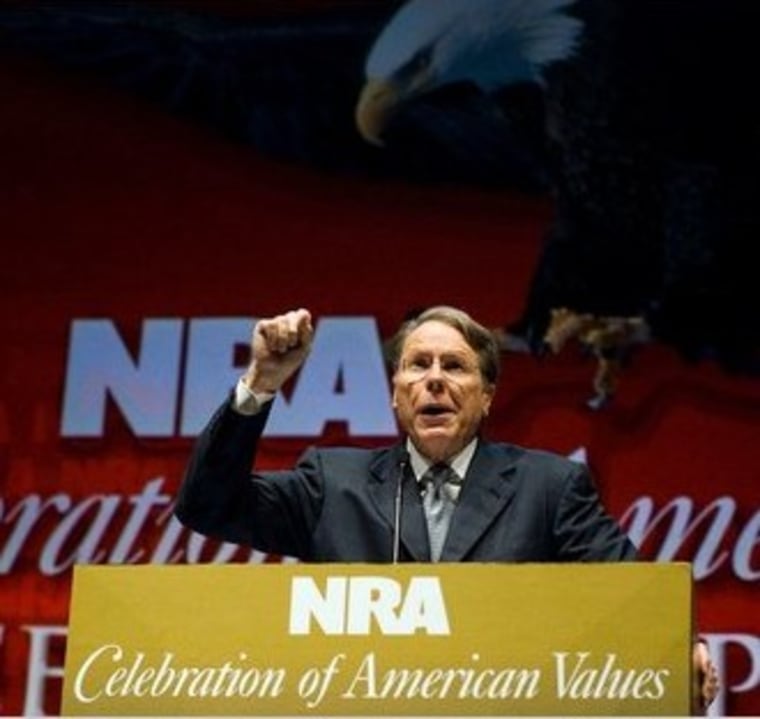On Monday, President Obama took his gun control proposals on the road for the first time since unveiling his new policies at the White House last month. Speaking in Minneapolis after a roundtable meeting on efforts to reduce gun violence, the president said, “No law or set of laws can keep our children completely safe. But if there is even one thing we can do, if there’s just one life we can save, we’ve got an obligation to try.”
The president appeared to be aiming his remarks not at the crowd gathered in Minnesota, but at lawmakers in Washington. Congress is expected to put up a tough fight against the proposals, which include banning semi-automatic weapons, high-capacity magazines, and instituting universal background checks.
The president’s comments could have been meant for the gun lobby as well. In the current debate over gun control, it has become conventional wisdom that the NRA’s opposition to stricter gun laws stands in the way of President Obama’s push for new gun regulation. The theory goes that senators and congressmen refuse to stand up to the NRA because the powerful gun lobby will make sure they lose their next election. But now that argument is being tested, and as it turns out, the power of the NRA may be more myth than reality.
Senator Chris Murphy (D-Conn.) has been studying the results of the last several elections, and on Andrea Mitchell Reports on Monday, he said the influence of the gun lobby simply isn’t what it used to be. Pointing to the 2012 election, Murphy said, “In all of the states with a lot of NRA members [who opposed President Obama] like Florida and Pennsylvania and Ohio, they lost and lost big.”
Senator Murphy, a former congressman whose Connecticut district included Sandy Hook, said that he had spent the past month and a half in Sandy Hook, and was inspired by the Newtown community to pass new gun regulations. Yet over the years, Murphy said, that goal has been unattainable because of the overstated influence of the NRA. “A lot of folks who wanted to step up and renew the assault weapons ban or take on the issue of background checks didn't because they thought there was a big political price to pay from the NRA.”
In fact, in the presidential election, the NRA was the one that paid. The organization spent $10.3 million in its effort to defeat President Obama. According to the Sunlight Foundation, the NRA’s political action committee saw less than a 1% return on its $11 million investment in the 2012 general election. In the 16 contested senate races that the NRA poured money into, the organization lost 13 of them.
By calling attention to the NRA’s effectiveness--or lack thereof--Senator Murphy hopes that others in Congress will not be afraid to show their support for tighter gun regulations.
“It just isn't the case like it may have been two decades ago that if you take on the NRA, there's a political price to pay. In fact, they do a lot worse than they ever did before,” Murphy told Mitchell Reports. The more people know about the NRA’s actual influence, Murphy believes, the more likely the president is to get his gun control measures through Congress.
“I think that people are going to be willing to vote for common-sense gun legislation, in part because people are seeing that the NRA is a bit of a paper tiger compared to their reputation down here.”
